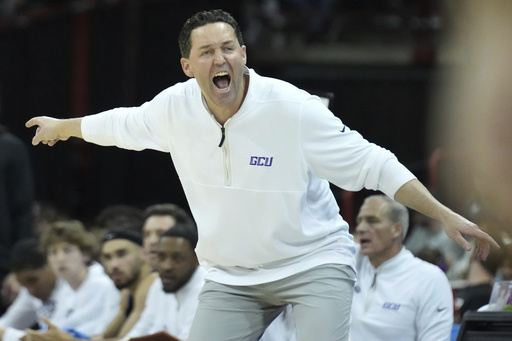The West Coast Conference (WCC) has initiated legal action against Grand Canyon University, alleging a breach of contract following the university’s decision to withdraw from an agreement to join the WCC in favor of the Mountain West Conference.
The lawsuit was submitted on Wednesday in the U.S. District Court for the Northern District of California, claiming that Grand Canyon has failed to pay the necessary entrance and exit fees after it shifted its allegiance only six months after committing to the WCC. “We felt compelled to pursue legal measures because this constituted a breach of contract, and our aim is to see our obligations fulfilled,” commented WCC Commissioner Stu Jackson on Wednesday. “According to our bylaws, any financial responsibilities for members who leave must be settled within a 30-day timeframe. This did not occur, which led us to take legal steps.”
Grand Canyon University has been affiliated with the Western Athletic Conference since the 2017-18 academic year, marking the conclusion of its four-year transition to Division I athletics. Amid a wave of realignments in college sports, GCU entered an agreement in May to join the WCC by July 2025. However, following Gonzaga’s announcement in October that it would depart for the reorganized Pac-12 in 2026, Grand Canyon declared its intention to join the Mountain West Conference just a month later.
Although Grand Canyon made an initial payment for the entrance fee shortly after signing the agreement with the WCC, the university has since refrained from paying the outstanding amount or the exit fee associated with its departure, as detailed in the lawsuit. “We recognize the disappointment stemming from our choice to ultimately decline the WCC’s invitation, and we empathize with their situation given their recent losses of key members like BYU and Gonzaga,” Grand Canyon remarked in a statement released on Thursday. “GCU was not slated to join the WCC until July 1, 2025, making the WCC’s assertion that GCU has ‘withdrawn’ or breached any agreement inaccurate. We are eager to present our arguments in court.”
While the specific amounts concerning the fees were not revealed, they represent a substantial sum, notably for a smaller conference that lacks the financial advantages of larger leagues such as the Southeastern or Big Ten conferences. “Their decision to switch to a different conference is their prerogative; however, the financial responsibilities to the WCC must still be met,” remarked Jackson.
The WCC seemed optimistic in May when Grand Canyon and Seattle confirmed their intention to join the conference, but the loss of Gonzaga in early October was a significant setback. Gonzaga has established itself as a powerhouse in college basketball under the guidance of coach Mark Few, with consistent deep runs in the NCAA Tournament. As a result, the WCC is currently left with only eight member institutions—at least for the time being.
“Even prior to Gonzaga’s exit, we had strategized to actively explore new membership opportunities for the conference,” Jackson added. “This approach will continue moving forward, and we remain committed to pursuing this path.”



